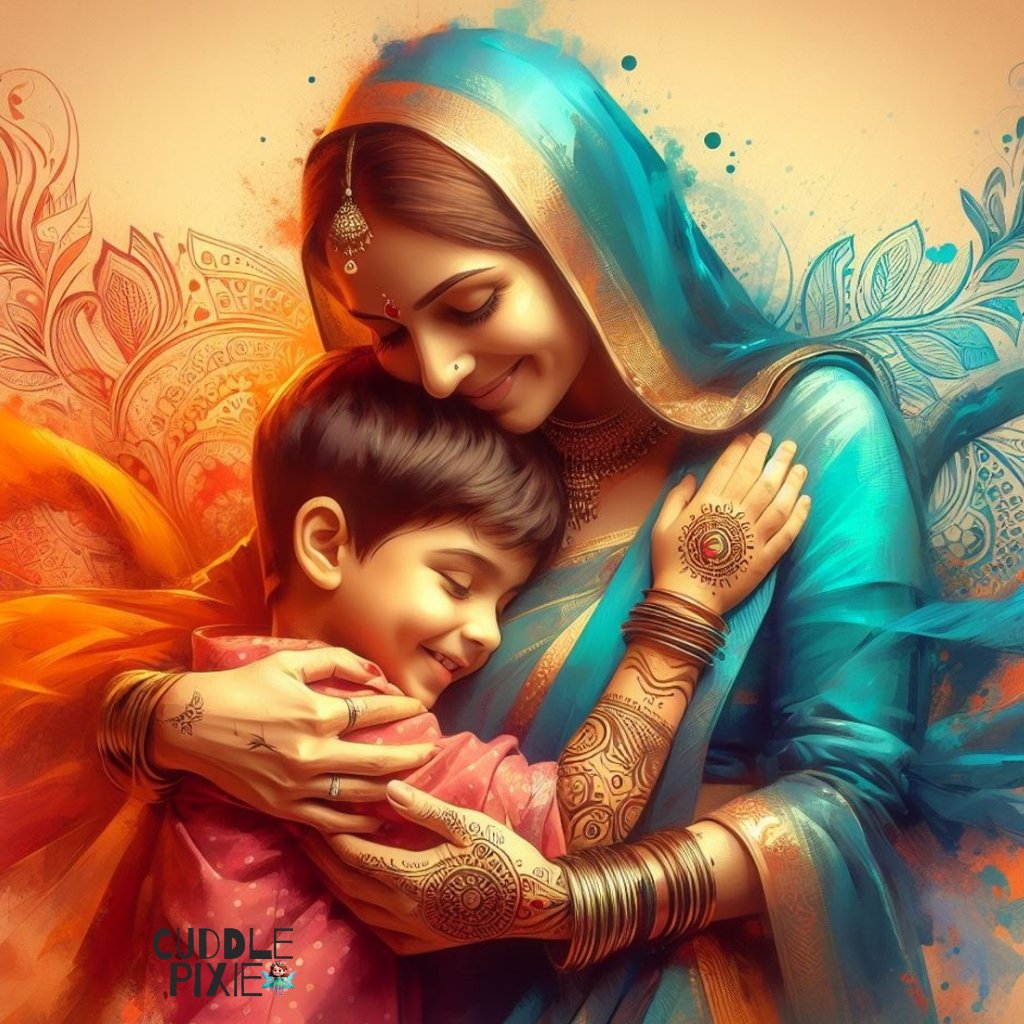Parenting is a journey fraught with challenges, joys, and endless decisions. In the diverse cultural landscape of India, this journey takes on a unique flavor, shaped by centuries of tradition, modern influences, and the ever-evolving dynamics of family life. In recent years, a new philosophy of parenting has emerged – gentle parenting. Advocates of gentle parenting emphasize empathy, communication, and mutual respect in raising children.
However, in a society deeply rooted in authoritarian traditions, the adoption of gentle parenting approaches poses a significant challenge for many Indian parents. This article explores the intricacies of parenting in India, delving into the clash between traditional practices and modern ideals, and offering insights into why gentle parenting may not always resonate with Indian children.
In This Article
The Cultural Context of Parenting in India
India’s rich tapestry of culture, religion, and tradition shapes every aspect of life, including parenting. From the importance of obedience and respect for elders to the emphasis on academic achievement, cultural norms play a significant role in shaping parenting practices. Traditional authoritarian methods, characterized by strict discipline and hierarchical family structures, have long been the norm in Indian households. These practices are deeply ingrained in the fabric of society, making it challenging for parents to break away from centuries-old traditions.
The Clash of Parenting Philosophies
The emergence of gentle parenting in India represents a departure from traditional authoritarian methods, advocating for a more empathetic and communicative approach to child rearing. However, this shift in parenting philosophy often clashes with deeply entrenched cultural beliefs and societal expectations. Parents who embrace gentle parenting may face criticism and judgment from family members, friends, and society at large, further complicating their journey towards a more compassionate approach to parenting.
Extended Family Dynamics
In Indian households, the influence of extended family members is pervasive, with grandparents, aunts, uncles, and cousins all playing a significant role in shaping the upbringing of children. While this support network can be a source of strength for parents, it can also pose challenges for those seeking to implement gentle parenting practices. Extended family members may hold more traditional views on parenting, making it difficult for parents to maintain consistency in their approach across different family contexts.
Educational Expectations and Competition
Education is highly prized in Indian society, with parents placing a strong emphasis on academic achievement as a pathway to success. In this competitive environment, the leniency of gentle parenting approaches may be perceived as a hindrance to academic excellence. Parents may feel pressure to resort to more authoritarian methods to ensure their children excel academically, further perpetuating the cycle of traditional parenting practices.
The Role of Respect and Authority
Respect for authority and elders is a cornerstone of Indian culture, instilled in children from a young age. However, the hierarchical nature of traditional parenting can sometimes blur the lines between respect and fear, leading to power struggles and strained relationships between parents and children. Gentle parenting advocates for a more egalitarian approach, emphasizing mutual respect and open communication, but reconciling these ideals with cultural expectations can be challenging for Indian parents.
Societal Stigma and Peer Pressure
In a society where conformity is prized and deviation from the norm is often frowned upon, parents who choose to embrace gentle parenting may face societal stigma and peer pressure. The fear of being judged or ostracized by friends, family, and neighbors can be a significant deterrent for parents seeking to adopt alternative parenting philosophies. This societal pressure can lead parents to conform to traditional practices, even if they may not align with their personal beliefs.
Cultural Beliefs and Superstitions
India is a land steeped in superstition and folklore, with cultural beliefs exerting a powerful influence on everyday life, including parenting practices. From the importance of astrology in determining a child’s future to the fear of the evil eye, cultural superstitions can pose barriers to embracing alternative parenting philosophies. Parents may be hesitant to deviate from traditional practices for fear of invoking bad luck or harm upon their children.
Lack of Resources and Information
Access to resources and information on gentle parenting can be limited in India, particularly in rural areas where internet connectivity and educational resources may be scarce. Parents seeking guidance on alternative parenting philosophies may struggle to find support networks or community resources to help them navigate their journey. This lack of information can leave parents feeling isolated and unsure of how to implement gentle parenting practices effectively.
Economic and Social Factors
Socioeconomic disparities can also impact parenting practices in India, with families facing economic hardship often prioritizing basic needs over parenting philosophies. Parents living in poverty may lack the time, resources, and support necessary to adopt gentle parenting approaches, further exacerbating the divide between traditional and modern parenting practices. Economic and social factors thus play a significant role in shaping the parenting landscape in India.
Final Thoughts
Parenting in India is a complex and multifaceted journey, shaped by cultural traditions, societal expectations, and individual beliefs. While gentle parenting offers a compelling alternative to traditional authoritarian methods, its adoption in India is not without its challenges. From navigating extended family dynamics to reconciling cultural beliefs and superstitions, Indian parents face a myriad of obstacles in their quest to raise compassionate, empathetic children.
As we continue to explore the complexities of parenting in India, it is essential to recognize the importance of cultural sensitivity, adaptability, and support in fostering healthy parent-child relationships. By embracing the diversity of parenting philosophies and challenging traditional norms, we can create a more inclusive and supportive environment for parents and children alike.
